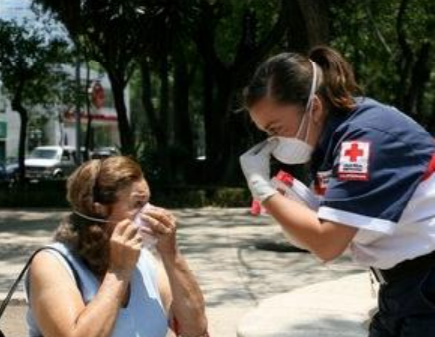
The recent outbreak of Influenza A(H1N1) (initially called “swine flu”) has demonstrated once again just how quickly pandemic disease can sweep across the globe, in this case, to over 40 countries in less than a month.
It is still too early to declare victory over A(H1N1), but if it turns out not to be as deadly a global menace as initially feared, it should at least serve as a reminder of how greatly we depend on the capacities of every government to prevent, monitor, announce and contain disease outbreaks-- of which there will certainly be more in the future.
In 2005, this realization -- along with various controversies among states during the SARS epidemic -- spurred the World Health Assembly to adopt a sweeping revision to the International Health Regulations (IHR), which became binding on all World Health Organization (WHO) member states in 2007.
The international alarm bell
One of the important advances of the revised IHR is a stronger system of obligations to provide international warnings in the event of outbreaks. States’ international notification obligations were previously confined to three specific diseases, but now encompass any threat to public health which is of international concern.
Moreover, if a state does not cooperate in providing information, the IHR set out a procedure whereby WHO may emit international notifications even without the consent of the affected state. Civil society is also given a role -- WHO may now officially accept information about disease outbreaksfor these purposes from sources other than governments.
"These are important innovations," notes Bruce Plotkin, of WHO's IHR Secretariat, "as the reaction to the SARS epidemic demonstrated the human cost of states' reluctance to provide information."
Strengthening the legal basis
Perhaps more important, however, are the new obligations of each state to meet certain standards in their national systems of disaster surveillance and control. States have also agreed to ensure that their measures do not unnecessarily impinge on human rights and international trade. Legal reforms will likely be required to achieve these commitments in many states.
The WHO is assisting interested states with such reforms, and the Red Cross/Red Crescent is starting to do its part as well. For example, the IFRC’s IDRL Programme is currently cooperating with WHO to assist the National Societies and governments of Cambodia, Vietnam and Laos to examine where their legal frameworks could be strengthened to implement the IHR.
However, a great deal remains to be done. As noted by Bob Kaufman, manager of the Federation's Avian and Human Influenza Unit, "National Societies have a unique and important role to play in supporting governments to prepare for disasters. Their involvement in developing national policies on humanitarian issues such as this creates a better chance of responding effectively and saving lives."
To learn more about the IHR, see WHO’s dedicated website at www.who.int/ihr.